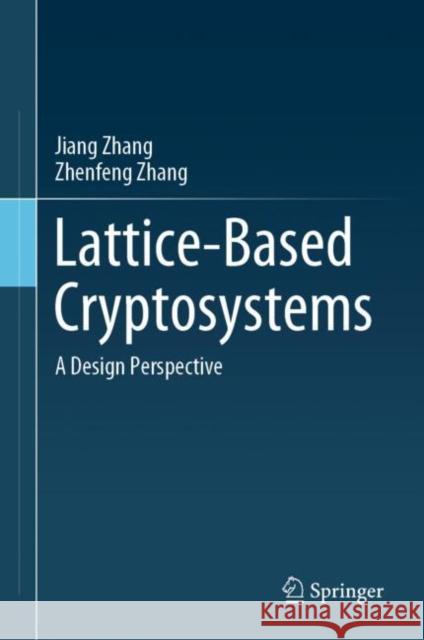Lattice-Based Cryptosystems: A Design Perspective » książka
topmenu
Lattice-Based Cryptosystems: A Design Perspective
ISBN-13: 9789811584268 / Angielski / Twarda / 2020 / 174 str.
Lattice-Based Cryptosystems: A Design Perspective
ISBN-13: 9789811584268 / Angielski / Twarda / 2020 / 174 str.
cena 615,15
(netto: 585,86 VAT: 5%)
Najniższa cena z 30 dni: 578,30
(netto: 585,86 VAT: 5%)
Najniższa cena z 30 dni: 578,30
Termin realizacji zamówienia:
ok. 16-18 dni roboczych.
ok. 16-18 dni roboczych.
Darmowa dostawa!
Kategorie:
Kategorie BISAC:
Wydawca:
Springer
Język:
Angielski
ISBN-13:
9789811584268
Rok wydania:
2020
Wydanie:
2020
Ilość stron:
174
Waga:
0.44 kg
Wymiary:
23.39 x 15.6 x 1.27
Oprawa:
Twarda
Wolumenów:
01
Dodatkowe informacje:
Wydanie ilustrowane











